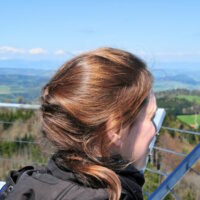Swiss town names ending in “ikon” and “wil”
-
Hello MySwissAlps, and greetings from the UK.
I last visited in spring 2018, spending the best part of a month with a round-Europe Interrail ticket almost entirely in Switzerland! It was so good.
I planned a return in 2019, and twice this year, but each time frustrated by family illness or Covid. I’m hoping it won’t be too long before this old-timer can be shuffling up and down those wonderful friendly valley branch lines again, especially in the less well-known regions. Bliss.
During lockdown I’ve been entertaining myself by poring over Swiss maps, especially the superb Swissmobility free online maps, and the astonishing variety of Swiss railway videos on YouTube – almost every line must be covered. Using the two resources together is so interesting.
This brings me to my question about Swiss place names, one that’s intrigued me for years. I notice so many that have the suffix ‘-ikon’ – Pfäffikon, Oerlikon, etc – especially around Zürich, and wonder if it has a specific meaning and etymology. The same applies to ‘-wil’ – Wattwil, Rapperswil, etc. (Perhaps a teutonic version of Ville?) In England we have hundreds of places ending ‘-ton’, ‘-by’, ‘-combe’ etc, each term with a specific derivation. It would be great to find out about these Swiss endings – I asked at a few places in Switzerland but nobody could help.
Many thanks
John
- The thread ‘Swiss town names ending in “ikon” and “wil”’ is closed to new replies.

